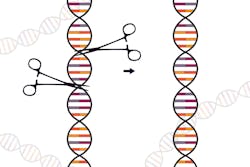Two new companion reports released by the World Health Organization (WHO) provide global recommendations to help establish human genome editing as a tool for public health, with an emphasis on safety, effectiveness and ethics, according to the WHO as reported in a news release.
The new reports result from the first broad, global consultation looking at somatic, germline and heritable human genome editing. The consultation, which spanned more than two years, involved hundreds of participants representing diverse perspectives from around the world, including scientists and researchers, patient groups, faith leaders and indigenous people.
Potential benefits of human genome editing include faster and more accurate diagnosis, more targeted treatments and prevention of genetic disorders. Somatic gene therapies, which involve modifying a patient’s DNA to treat or cure a disease, have been successfully used to address HIV, sickle-cell disease and transthyretin amyloidosis. The technique could also vastly improve treatment for a variety of cancers.
However, some risks exist, for example, with germline and heritable human genome editing, which alter the genome of human embryos and could be passed on to subsequent generations, modifying descendants’ traits.
The reports deliver recommendations on the governance and oversight of human genome editing in nine discrete areas, including human genome editing registries; international research and medical travel; illegal, unregistered, unethical or unsafe research; intellectual property; and education, engagement and empowerment. The recommendations focus on system-level improvements needed to build capacity in all countries to ensure that human genome editing is used safely, effectively, and ethically.

